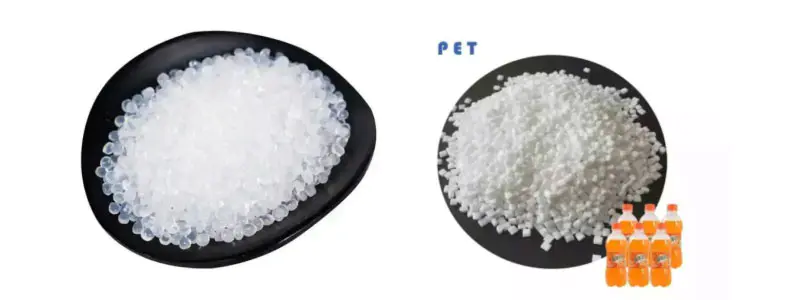PET bottle chip is recycled polyester bottle material after recycling, sorting, crushing and cleaning. Its core feature is that it retains the molecular chain structure of virgin polyester and has the property of recycling. This material forms a resource substitution effect in the multi-level industrial chain through the recycling and reprocessing mechanism.
PET bottle chip has a renewable function. After melt filtration to remove impurities, it can replace virgin polyester to produce chemical fiber staple fibers for filling materials and non-woven fabric manufacturing. In the field of sheet extrusion, recycled bottle chips restore viscosity characteristics through crystallization and drying, and are converted into food-grade packaging substrates. The physical recycling process effectively reduces the consumption of petroleum-based raw materials and reduces the carbon footprint intensity of the manufacturing industry.
In the textile field, PET bottle chip recycled staple fibers have excellent fluffiness and resilience, and are suitable for the production of sofa fillings and thermal insulation flakes. In the engineering plastic modification link, bottle chips are used as a reinforcing phase to improve the impact resistance of composite materials. In high-end application scenarios, purified bottle chips achieve bottle-to-bottle closed-loop regeneration through solid-phase viscosity enhancement, which meets the safety specifications of food contact materials.
Is the environmental benefit better than traditional disposal?
Recycling increases the resource utilization rate of PET bottle chips, avoiding land occupation caused by landfill and toxic gases produced by incineration. Every ton of bottle chips reused can reduce the energy consumption of crude oil extraction and polymerization processes.








